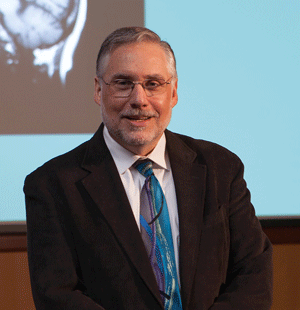 |
|
|
Sheldon Benjamin, MD |
UMass Medical School neuropsychiatry expert Sheldon Benjamin, MD, was straightforward in an interview with WBZ News Radio about whether playing brain games or solving crossword puzzles can stave off cognitive decline from memory loss to Alzheimer’s disease.
“Staying cognitively active does not protect you against dementia,” Dr. Benjamin said.
His comments came in the wake of the Federal Trade Commission’s announcement that the creators and marketers of the Lumosity “brain training” program have agreed to settle charges alleging that they deceived consumers with unfounded claims that their games can help users reduce or delay cognitive impairment associated with age and other serious health conditions.
In a Jan. 5 interview with Diane Stern on Boston’s WBZ News Radio, Benjamin, professor of psychiatry and neurology, agreed with the FTC that, while studies have shown that gaming participants can improve their performance on simple tasks, there is no compelling evidence that games “reduce or reverse cognitive decline.”
“I am aware that these brain games are increasingly reaching into the population who feel that they are doing something to promote brain health in old age by playing them,” said Benjamin. “The problem is in translating that [game] skill into some other skill that is useful in daily life. I think the more you use your cognitive capacity the more fluidly you can recall words and the more fluidly you can use language. However, I don’t think solving crosswords is going to prevent memory decline.”
Related links on UMassMedNow:
Expert’s Corner: New edition of diagnostic manual for mental disorders is research-driven and evidence-based
Benjamin connects memory and mentoring at Educational Recognition Awards